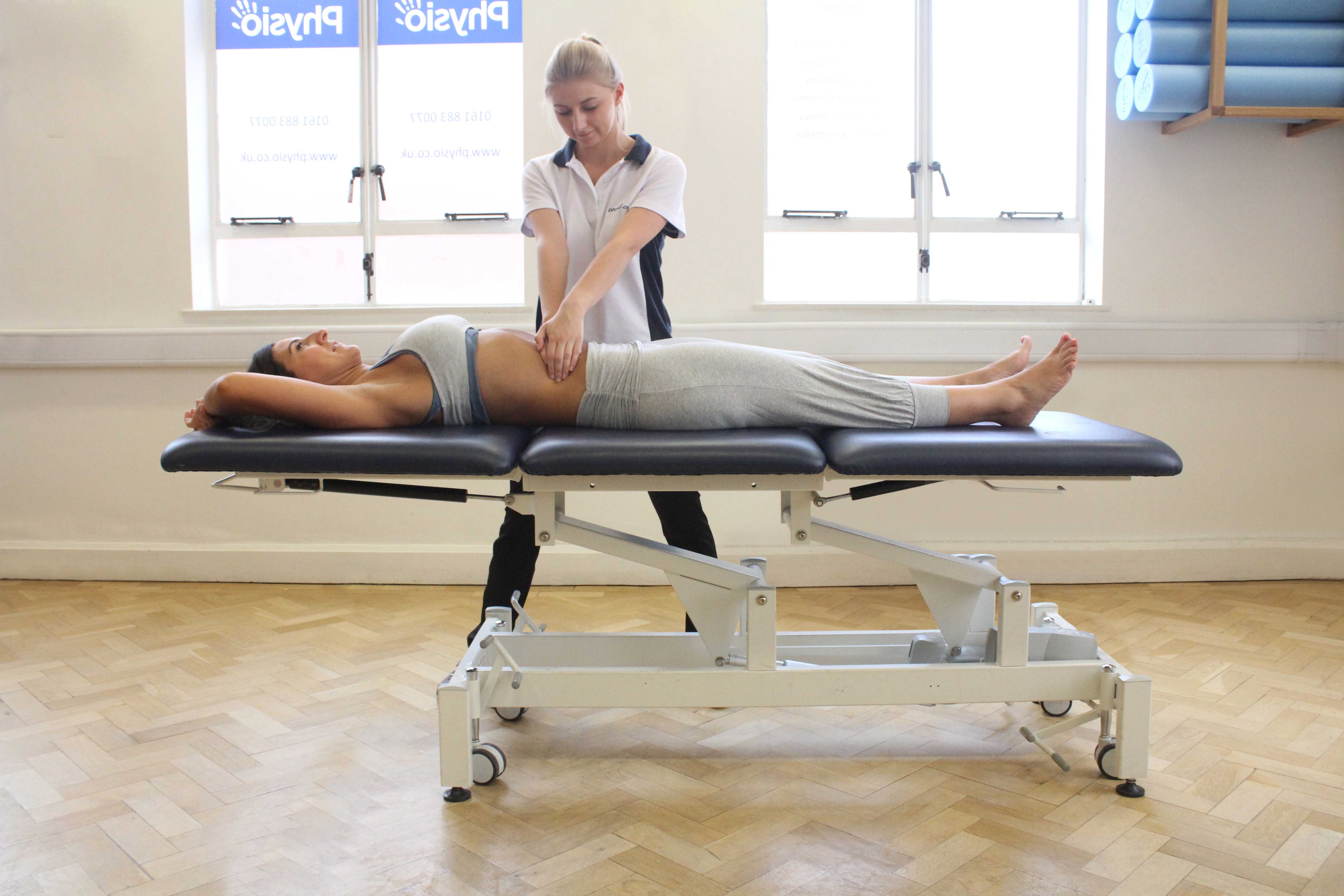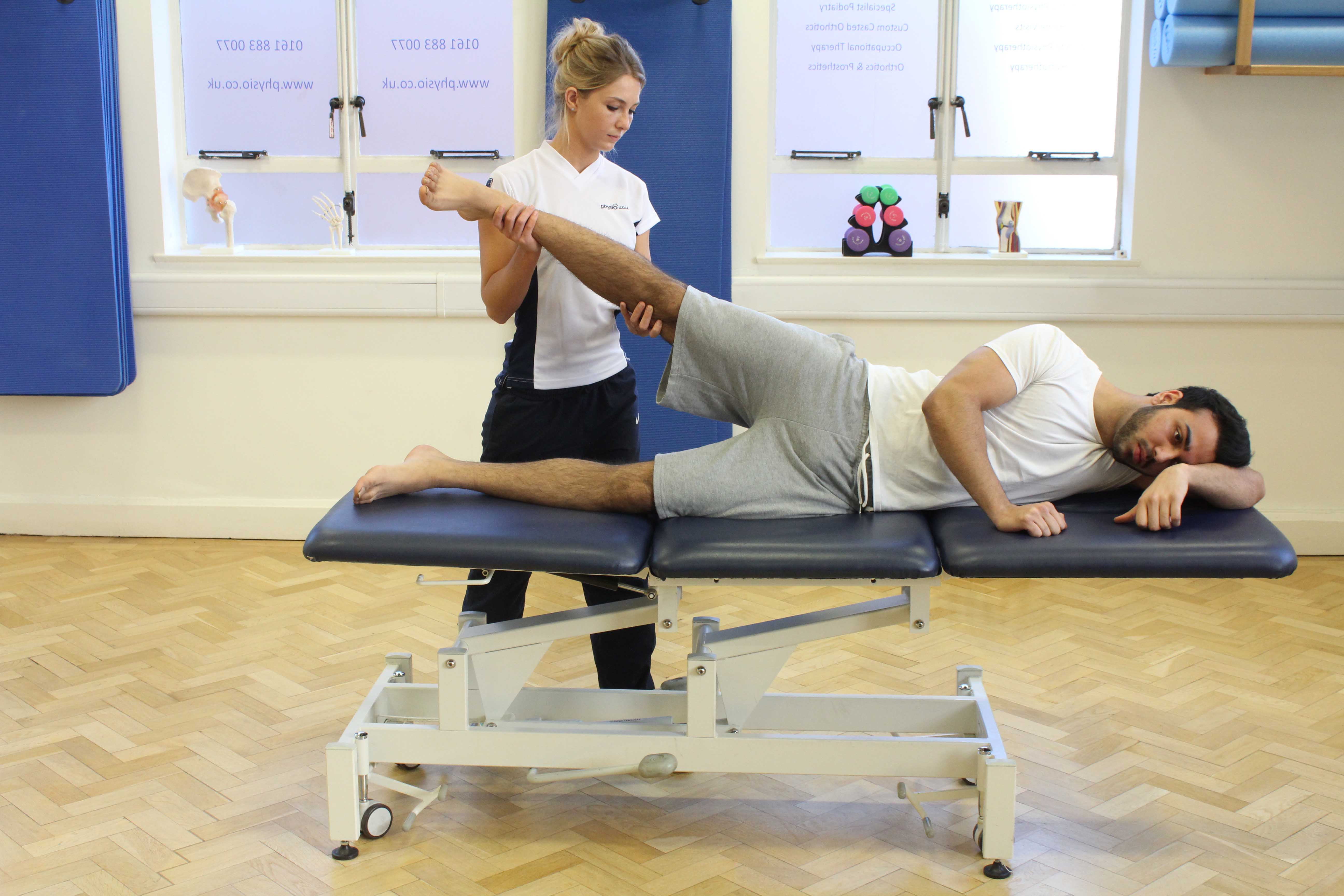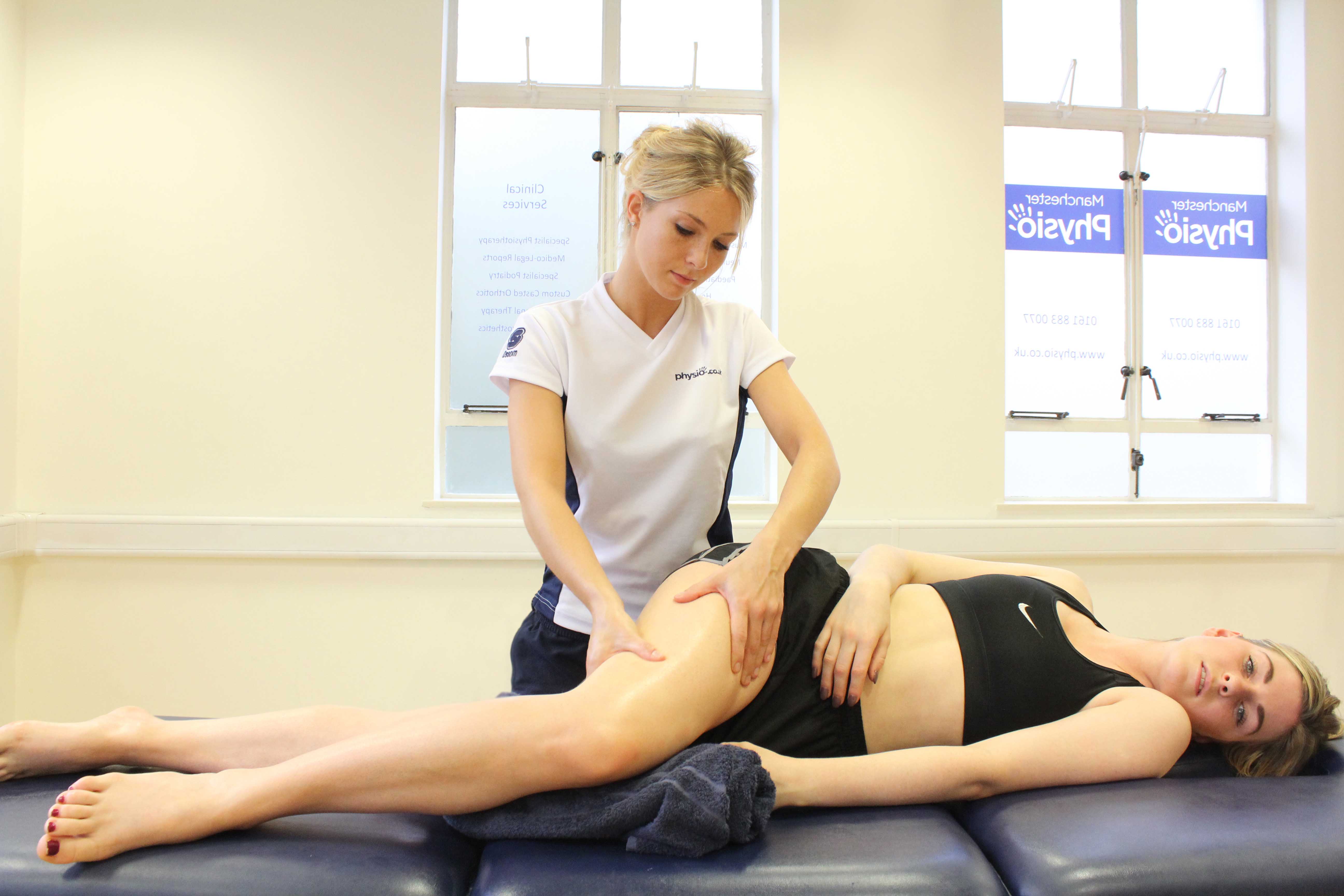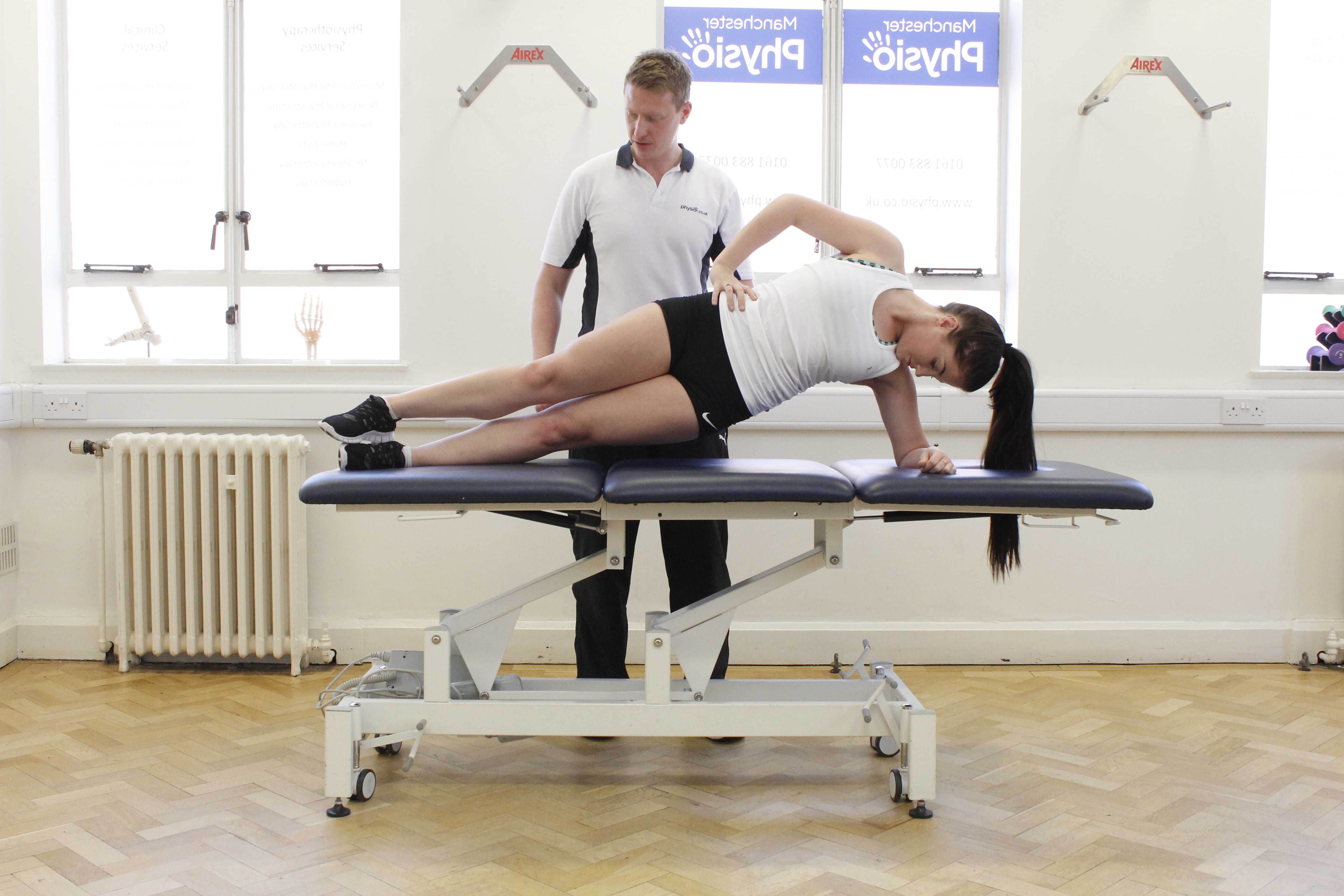Physiotherapy for fractured neck of femur surgery
The top part of the thighbone (femur) close to your hip joint, is called the neck of femur. The neck of femur is commonly fractured by a fall. Generally, this type of fracture occurs in the elderly and happens more frequently in women. It also affects individuals who have osteoporosis (thinning of the bones). This is because their bones are weakened by osteoporosis making them more susceptible to injury.
Individuals over the age of 60 years are commonly treated by removing the head of the femur and replacing it with a metal prosthesis. Alternatively, surgery for a fractured neck of femur may involve fixing the broken bone with a screw or a nail, if the bone has a good blood supply.
If you need an operation to repair your broken hip, you will usually have it within two days of being admitted, unless you have a medical reason for delay.
Physiotherapy treatment after you surgery will reduce your pain and improve your ability to walk again on your leg.
 Above: Soft tissue massage of the muscles and connective tissues around the hip
Above: Soft tissue massage of the muscles and connective tissues around the hipPhysiotherapy before your surgery
You may be visited by a physiotherapist before your surgery, to give you some gentle exercises to keep your muscles strong and maintain the circulation in your legs. Your physiotherapist will also give you some information and precautions about your surgery and what to expect afterwards.
 Above: Passive stretch of the hip joint and surrounding connective tissues
Above: Passive stretch of the hip joint and surrounding connective tissuesSymptoms after your surgery
You will experience some pain and discomfort following your operation but you will be given tablets to help with the pain. Your legs will also feel weak and your movement will be limited. The doctors and nursing staff will look after your individual care on a daily basis to help your recovery.
A physiotherapist will visit you after your surgery and will help you get back on your feet as soon as possible, starting from the first day after your operation. Your physiotherapist will provide a frame initially for your safety,but as your confidence improves you may be able to use crutches to walk around on your own. Your physiotherapist needs to be confident that you are safe on your feet before you are discharged home. You may stay in hospital approx 5 days but this depends on your general health and fitness. If you need to practice on the steps or stairs your physiotherapist will do this with you.Your physiotherapist will also give you gentle exercises for your leg muscles and ankle mobilisations.
 Above: Soft tissue massage of the muscles and connective tissues around the hip
Above: Soft tissue massage of the muscles and connective tissues around the hipPhysiotherapy following your surgery
Physiotherapy treatment will facilitate your recovery after leaving hospital. Physiotherapy treatment at Physio.co.uk will reduce your pain, increase your range of movement and muscle strength and help you with regain your mobility as soon as possible.
Rehabilitation goals at Physio.co.uk will include:
- Decreasing pain and swelling
- Restoring and maintaining full range of motion in the hip
- Increasing strength in your leg muscles
- Teaching you how to mobilise safely with or without support
- Promoting independence with transfers, getting in and out of the bath, getting up and down the stairs
- Improving quality of life
1-2 weeks
An initial assessment with your physiotherapist will look at you range of movement, muscle strength and functional activities such as sit to stand. From the assessment, a structured treatment plan will be developed incorporating goals that are suited to your requirements. In the first few weeks of your rehabilitation your physiotherapist will advise you on certain movements that should be avoided. For example, you shouldn't cross your legs or twist your hip inwards and outwards.
At Physio.co.uk, in the first couple of weeks of your treatment programme the main aims are to control your pain and swelling and gradually improve your range of motion and muscle strength. Physiotherapy will also be focused on teaching you how to walk correctly and safely. Physiotherapy treatment at this stage will include:
- Teaching you how to mobilise with the use of assistive devices, such as crutches and a walker
- Continuation of functional transfer training such as getting in and out of bed, getting in and out of the bath and how to get up from a low chair.
- Gentle range of movement strengthening exercises as pain allows
- Hydrotherapy
2-6 Weeks
During this stage, our physiotherapists at Physio.co.uk will look at your progress and continue with your exercises to increase range of movement in your hip joint with the addition of resistance exercises. To promote your independence, exercises with be tailored around daily tasks. Physiotherapy activities will include:
- Exercises to strengthen muscles
- Stretching exercises to increase the flexibility of hip muscles
- Increasing your walking distance with less assistance if able
- Activities to improve your balance
6-12 weeks
At this stage of your rehabilitation your physiotherapist at Physio.co.uk will focus on regaining your independence with everyday activities important to you. Your physiotherapy treatment will continue with exercises to improve flexibility and strength in the muscles around your hip and improve balance. Treatment will also promote your mobility and increase your confidence around your home.
 Above: Strengthening exercises for the hip and pelvic muscles, supervised by MSK therapist
Above: Strengthening exercises for the hip and pelvic muscles, supervised by MSK therapist12+ weeks
Recovery from surgery may take up to 6 months, but with the help of physiotherapy you will make a full recovery as soon as possible. Your physiotherapist at this stage of your rehabilitation will focus on reaching your maximum potential with daily tasks. Physiotherapy treatment will improve your independence and quality of life.
For more information call Physio.co.uk now on 0330 088 7800 or to book an appointment please contact us.

 0330 088 7800
0330 088 7800





































